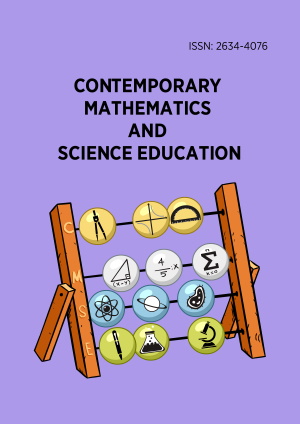Keyword: pre-service teacher
6 results found.
Research Article
Contemporary Mathematics and Science Education, 6(1), January 2025, ep25007, https://doi.org/10.30935/conmaths/16114
Research Article
Contemporary Mathematics and Science Education, 5(1), January 2024, ep24003, https://doi.org/10.30935/conmaths/14384
Research Article
Contemporary Mathematics and Science Education, 5(1), January 2024, ep24001, https://doi.org/10.30935/conmaths/14098
Research Article
Contemporary Mathematics and Science Education, 4(2), July 2023, ep23020, https://doi.org/10.30935/conmaths/13341
Research Article
Contemporary Mathematics and Science Education, 3(1), January 2022, ep22011, https://doi.org/10.30935/conmaths/11932
Research Article
Contemporary Mathematics and Science Education, 2(2), July 2021, ep21012, https://doi.org/10.30935/conmaths/11110

 The articles published in this journal are licensed under the CC-BY Creative Commons Attribution International License.
The articles published in this journal are licensed under the CC-BY Creative Commons Attribution International License.